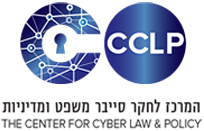 The City University of New York
The City University of New York
Yafit Lev-Aretz is an Assistant Professor of Law at Zicklin School of Business, Baruch College, City University of New York. Professor Lev-Aretz is also a research fellow at the TOW center at Columbia Journalism School. Professor Lev-Aretz studies self-regulatory regimes set by private entities and the legal vacuum they create. She is especially interested in the growing use of algorithmic decision-making, intrusive means of news dissemination, choice architecture in the age of big data, and the ethical challenges posed by machine learning and artificially intelligent systems.
Her research also highlights the legal treatment of beneficial uses of data, such as data philanthropy and the data for good movement, striving to strike a delicate balance between solid privacy protection and competing values. Previously, Professor Lev-Aretz was a research fellow at the Information Law Institute at NYU, and an intellectual property fellow at the Kernochan Center for the Law, Media, and the Arts at Columbia University.
Abstract:
The term “data philanthropy” has been used to describe the sharing of private sector data for socially beneficial purposes, such as academic research and humanitarian aid. The recent controversy over an academic researcher’s alleged misuse of Facebook users’ data on behalf of Cambridge Analytica has brought data philanthropy into the spotlight of public debate. Calls for data ethics and platform transparency have highlighted the urgent need for standard setting and democratic oversight in the use of corporate data for public ends. Data philanthropy has also received considerable scholarly attention in various academic disciplines but has, until now, been virtually overlooked by the legal literature. This Article explains and starts filling in the resulting research gap by providing the first legal accounting of data philanthropy. Following a detailed description of current developments and scholarly thinking, this Article homes in on a normative assessment of privacy risks that are often cited as a conceptual and practical barrier to data philanthropy.
The Article refines the scope of data philanthropy's informational risks and proposes a framework for mitigating some of these risks through the Fair Information Practice Principles (FIPs). Specifically, the purpose specification and use limitation principles, which limit data collection to ex-ante specified purposes, are discordant with the unanticipated, ex-post quality of data philanthropy. This Article suggests adopting a new “data philanthropy exception,” which accounts for the existence and nature of the privacy risks, the time frame for action, the social risks of using the data, and the allowed retention time following the reuse. This Article concludes that the data philanthropy exception reinforces the values at the heart of the FIPs, provides guidance in a field that currently operates in a legal vacuum, and introduces the possibility of responsible sharing by and to smaller market participants.





